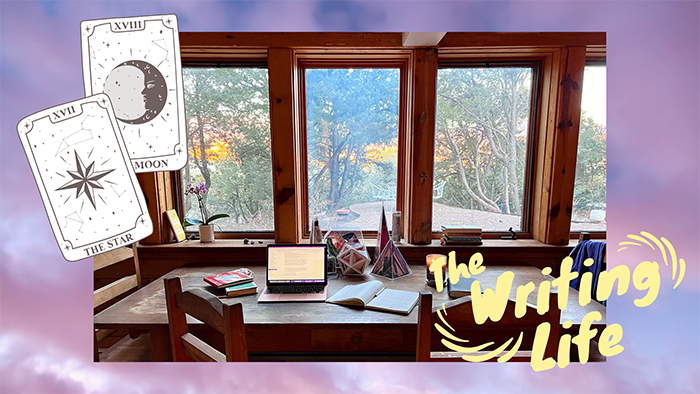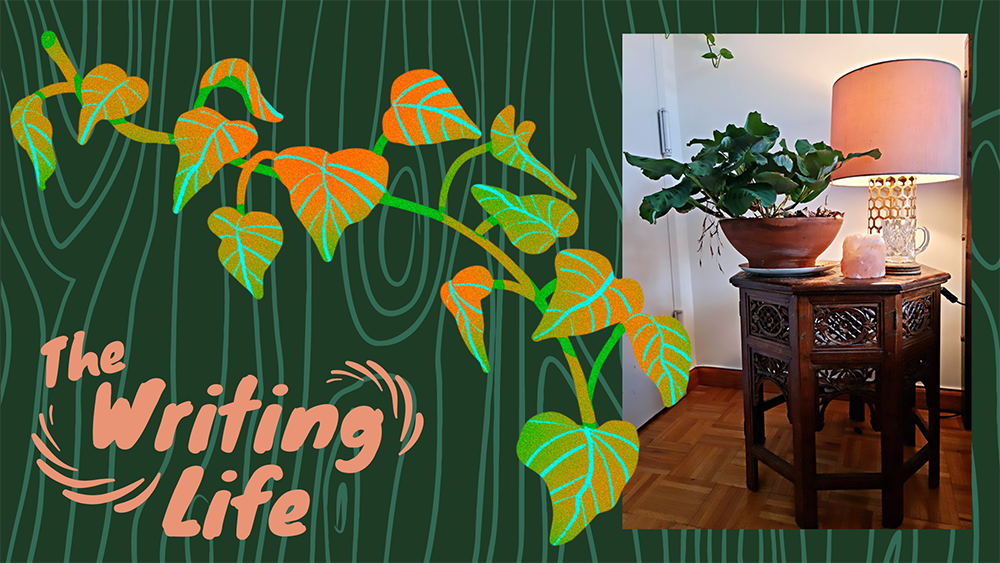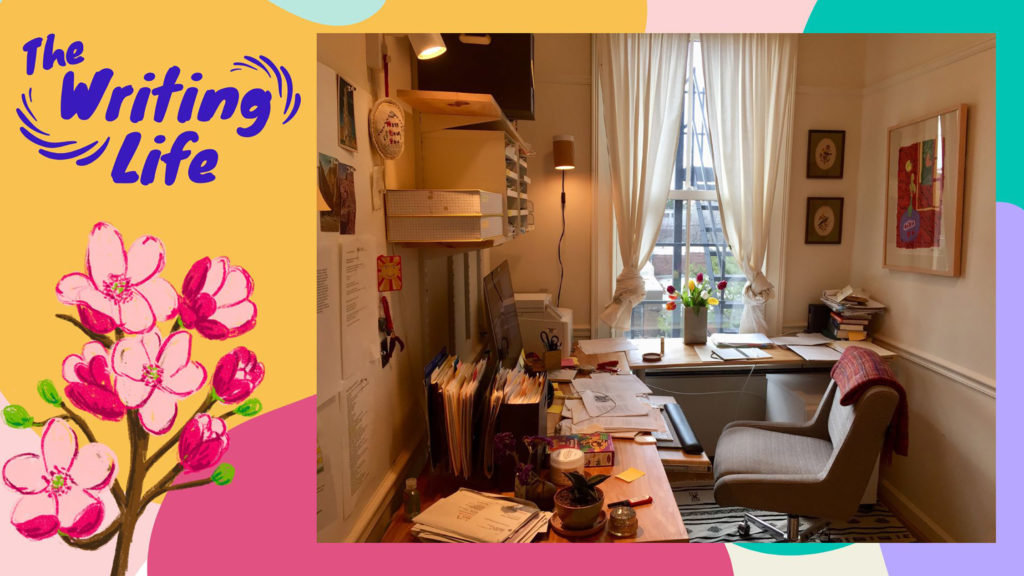Former Open City Fellow Roja Heydarpour answers ten questions about her writing life.
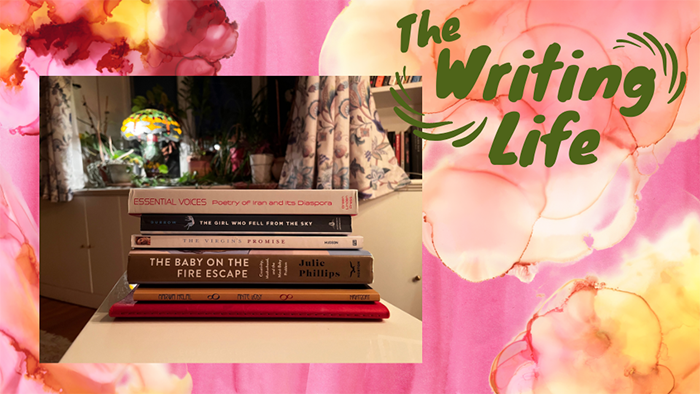
August 12, 2022
“Writing is easy,” Pulitzer Prize–winning sportswriter Red Smith once said. “All you do is sit down at a typewriter and open your veins, and bleed.” Putting pen to paper (or fingers to a keyboard) is never a simple task, even for seasoned writers. Even our Margins and Open City Fellows—and there’s quite a handful of them—can attest to that. Many of them, though, have gone on to write and report for mainstream publications and publish books. In this series, we reached out to our former fellows and asked them to give us a glimpse of their writing lives and to share some tips on how they navigate this creative process called writing.
Roja Heydarpour wrote about her and her family’s experience as immigrants from Iran during her time as an Open City Fellow in 2017. In “When the First Generation Dies,” Roja, after attending a friend’s funeral, shared her thoughts about death rites and assimilation. She recalled in “Starting from Scratch” that one of the side effects of her family’s immigrating to the United States was the reversal of gender roles in the household. In “Undocumented in the 80s,” Roja wrote about her family’s hunt for the green card that led them all the way to Juarez, Mexico.
Here’s Roja.
—Noel Pangilinan
1. What’s on your nightstand?
I find myself reading people I know (or kind of know) a lot lately. I pivoted from straight journalism to fiction a few years ago and in pursuit of learning the craft, I’ve met a lot of working writers and joined two writing groups. The books range from non-fiction to fiction to poetry and are giving me a wide perspective on style, story, publishing . . . everything. They’re inspiring.
The Girls Who Fell From the Sky by Heidi Durrow is a fast, but deep read—and just found itself on a banned book list. The Baby on the Fire Escape by Julie Phillips has been essential reading that profiles women writers and artists and how they navigate motherhood and their crafts. A new anthology of modern Iranian poetry, Essential Voices, is what I’ve been waiting for! It’s in English! The introduction alone is worth the read. Other than that, mostly devices clutter my nightstand at night. Laptop, phone, hair tie, and water.
2. Coffee or tea? Why?
BOTH. I love all forms of caffeine. I start the day with several cups of hot, black tea brewed Iranian-style. Coffee in the morning makes me feel jittery and hollow.
Then, if I’m out and about in the afternoon, I’ll have a coffee since coffee-shop tea bags just don’t cut it. Iced lattes in the summer hit the spot. I’ll have another cup of tea in the evening.
3. Do you have any tips for interviewing people?
Just listen. Really listen. Do your research on the topic/person beforehand so that you are free to talk, watch, and hear what the person is trying to say. From there, it can be a conversation. If you’re genuinely curious, you can find the points that are meaningful and help the person express themselves—whether it’s a poet or a district attorney.
If it’s the latter, sometimes they accidentally express themselves. In the fall of 2008, I saw a small-town district attorney in a bar and as we were talking about the presidential elections, he said, probably because of my face, “Obama’s a Muslim.”
I couldn’t use it in a story, but it stuck with me. I simply helped him “express himself.”
4. How do you deal with writer’s block?
I am always in a perpetual state of writer’s block. I have changed entire careers, gotten new trainings, and re-arranged my life multiple times to get around it. It sucks and is always there. I have found that in the last few years, I have been a little gentler on myself about it. And as a result, I have written more than I ever have.
5. What are you working on now and what recent work are you proud of?
I’m working on—dare I say—a NOVEL. It’s something I’ve always wanted to do. As I hone in on the tone and the structure, and possibly a full first draft, I’m feeling stronger about it all. The parts that I’ve written already, I’m pretty proud of. The most recent published work I’m proud of is definitely the set of essays I wrote during my Open City Fellowship. They were the launching pad for the novel.
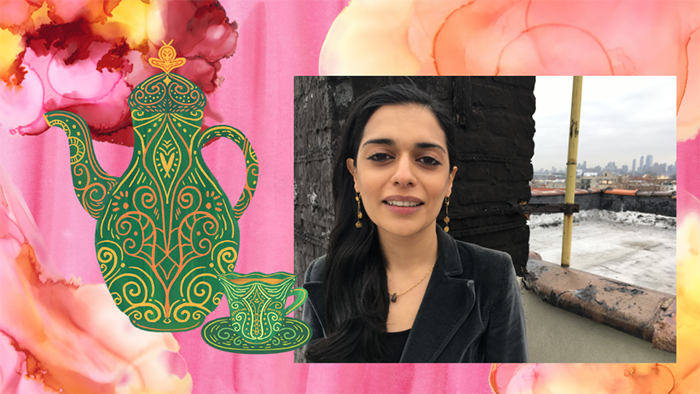
6. Did you ever consider writing under a pseudonym?
So many times. It crossed my mind just yesterday. Starting out in journalism, I thought about it a lot. I was always hesitant to just become a hollow talking head about Iran and its affairs for a Western audience with Western-centric editors, for fear of possible consequences for family and friends still in Iran. I also didn’t want to be pigeon-holed as an Iran-watcher. I didn’t trust any of it.
So, I thought about a pseudonym. But then, I thought, if I’m not willing to put my name on it, then I probably shouldn’t be publishing it. That said, they could have been the fears of a self-important young writer. On the other hand, I dreamed of being free to write as NOT ME. Free of consequences. I still do. Who needs to know?
7. If you didn’t write, what would you do for work?
Well, I do help run my family’s day care and have taught ESOL and Citizenship prep
classes alongside my writing for several years. How else could I leave the newsroom?!
But when I’m really sick of it all, I would think about going into nursing. Nurses make a daily impact, and practically-speaking, I could still go through training. I liked the sciences. If we had stayed in Iran, I probably would’ve been a doctor. This is a compromise.
8. What’s your favorite bookstore or library? Tell us why it’s your favorite.
At the moment, it’s the Center for Fiction in Brooklyn. I’m a member there and love it. The bookstore is beautiful, the cafe is great. Upstairs, the lending library is stellar, and the reading rooms are comfortable. It’s got everything. And I run into people there sometimes too.
9. What’s the best or worst piece of writing advice you’ve received?
I think the worst advice I received is that a writer has to wake up at 5 a.m. and write every day in order to be a writer. Nope. That is definitely not me. Trying to bend myself into that idea of a writer just plunged me deeper into writer’s block. It was terrible. The more I let myself work the way that feels natural, the better it goes.
The best/worst advice I got from the Iranian aunties and uncles was that a writer has nothing meaningful to say until they are at least 70 years old. Sure. Maybe. But there’s an in-between. Don’t need to be thirty under thirty. Don’t need to be seventy over seventy before I get started either!
10. What’s your fondest memory of being an AAWW Fellow?
So many fond memories. My fellow Open City fellows were wonderful. And my editors—Noel, Jyothi. The workshops and classes. In general, the mission and tone of the space opened my eyes. Coming from traditional newsrooms, I could see a path to realizing what young me dreamed of when she wanted to be a writer. There were specific, funny stories, too, but I’ll save those for another time.
Other stories in The Writing Life series:
“No Other Way to Be a Writer Except to Be Alone in a Room” by Anelise Chen
That Which You Are Afraid to Write, Write It” by huiying b. chan
“Cut Down the Quotes . . . Include Only Gemlike Phrases” by E. Tammy Kim
“I Am Still Developing as a Writer” by Hannah Bae
“Write a Sentence—Any Sentence—No Matter How Bad It Is” by Astha Rajvanshi
“Intuition Is My Main Tool” by Chaya Babu
“Writer’s Block? What’s That?” by Humera Afridi

